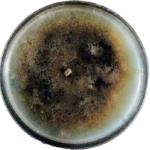The iconic movie remake of A Star Is Born, starring Bradley Cooper and Lady Gaga among other notables, strikes a chord as it genuinely and accurately captures the reverberating heartache associated with addiction, depression, anxiety and
depression
Depression and anxiety are not always easy to detect.
The Patient Health Questionnaire-9 (PHQ-9) is a quick, 10-question test that attempts to objectify an inherently subjective topic: depression.
Graduate school can be extremely tough on students.
An often toxic mixture of snark and narcissism, Twitter usually does not bring out the best in humanity. Amidst all the noise, however, scientists are searching for a useful signal: A predictor of mental illness.
This time last week I hadn’t even heard of the Broadway musical sensation Dear Evan Hansen.
Depression is something of a black box. Its underlying causes aren't completely understood, nor why particular medications work for some people but not others. Even worse, treatments are not fully successful in up to 60% of patients.
One in 10 people have a major depressive disorder (MDD) during their lives, which makes depression the most common mental illness. Women are twice as likely as men to suffer from depression.
Ask yourself how often you ever think about your ability to hear? How much you value it? How much you—and your loved ones—would be impacted if it were gone or profoundly diminished?
Alternative medicine is like an "alternative fact." If it was real, then the word "alternative" wouldn't be necessary.












